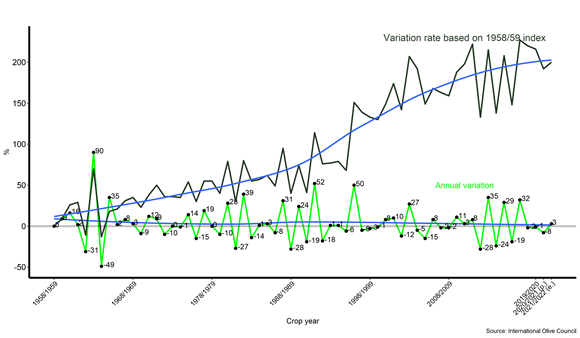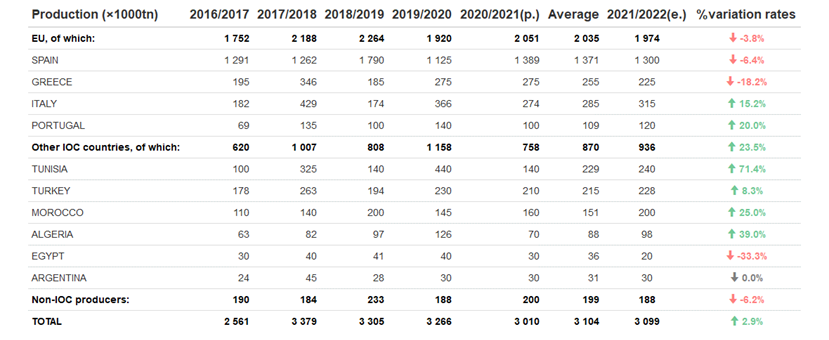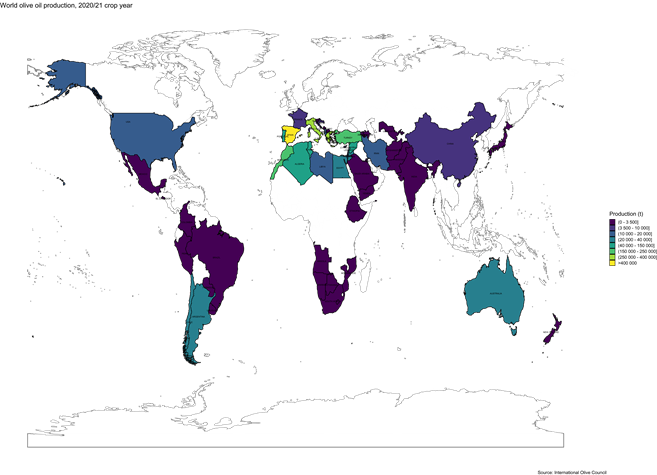Olive oil production has tripled in the last 60 years to reach 3 266 500t in the 2019/20 crop year. Provisional data for 2020/21 point to a 7.9% fall in production for a volume of 3 010 000t. Estimates for the 2021/22 crop year put production at 3 098 500t (+2.9%).

Graph I – Olive oil production. Annual variation rate based on 1958/59
- Olive oil – Provisional figures for the 2020/21 crop year
Provisional figures for the 2020/21 crop year put world production of olive oil at 3 010 000t, which is 256 500t or 7.9% less than the previous year. Consumption is expected at around 3 125 000t (-4.4%) and imports and exports at 1 122 500t and 1 108 500t respectively.

Table I – Olive oil production.
The IOC member countries produced 2 809 500t of olive oil in the 2020/21 crop year, which accounts for 93.3% of the world total. Some 2 051 200t (+6.8% on the previous crop year) came from the EU: Spain produced 1 389 000t (+23.4%), Italy 273 500t (-25.4%), Greece 275 000t (stable) and Portugal 100 000t (-28.8%).
The remaining member countries produced 34.5% less than the previous crop year, totalling 758 500t: Turkey produced 210 000t (-8.7%), Morocco 160 000t (+10.3%), Tunisia 140 000t (-68.2%) and Algeria 70 500t (-44%). Consumption reached 2 054 000t in IOC member countries and 1 071 000t in non-member countries.

Map I – Olive oil production 2020/21
- Olive oil – Estimates for the 2021/22 crop year
According to official country data and Executive Secretariat estimates, world production is forecast at around 3 098 500t in the 2021/22 crop year, 2.9% up on the previous year. Imports and exports are estimated to exceed 1 million tonnes.
The IOC member countries are set to produce 2 910 500t of olive oil in the 2021/22 crop year, or 93.9% of the world total, which is 3.6% more than the previous year. The EU countries are expected to produce 1 974 100t, or 3.8% less than the previous year. Production in the rest of the IOC member countries is estimated at 936 500t.
World consumption may reach 3 214 500t, 2.9% more than the previous crop year.
Further information are available on this link: https://www.internationaloliveoil.org/what-we-do/economic-affairs-promotion-unit/










